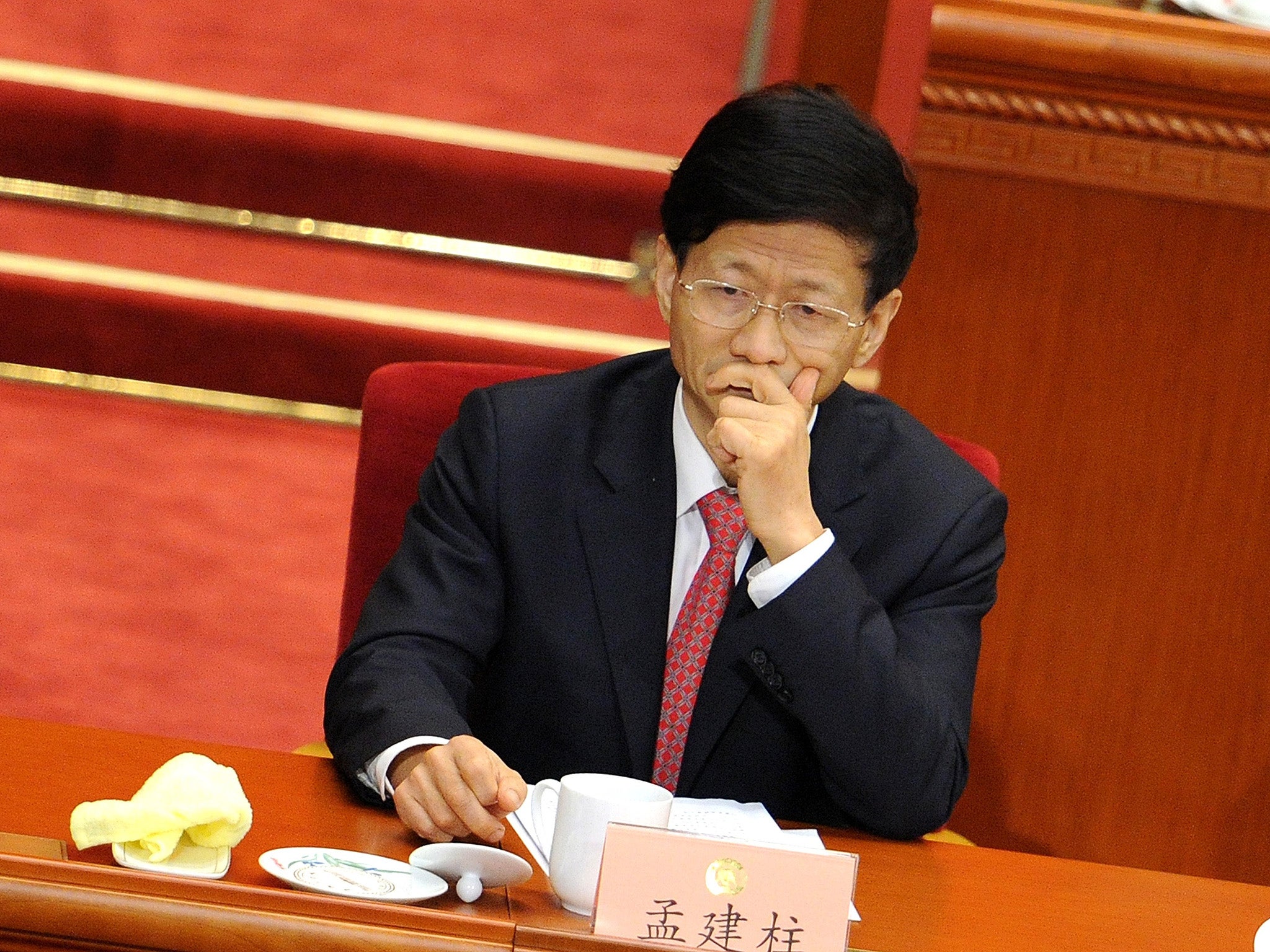China’s security boss planning to use AI to stop crime before it even happens
Meng Jianzhu says data analysis can predict patterns which could stop terror attacks of social unrest before they happen

China’s top security officer has revealed plans to use artificial intelligence to predict crime, terrorism and social unrest before it happens.
Meng Jianzhu, the head of the Chinese Community Party’s central commission for political and legal affairs, said the government would start to use AI software which uses machine learning, data mining and computer modelling to predict where crime and disorder is likely to occur.
“Artificial intelligence can complete tasks with a precision and speed unmatchable by humans, and will drastically improve the predictability, accuracy and efficiency of social management,” Mr Meng told colleagues at a meeting in Beijing on Friday.
He said security forces should look for patterns in data about terror attacks and build an analysis model to help authorities predict where the attack may strike, Chinese news website thepaper.cn reported.
Mr Meng also called for all elements of the Chinese state and the party to share data with each other and for renewed efforts to integrate surveillance footage systems across the country.
Some of these technologies, such as facial recognition, are already in use in some Chinese cities.
In Shanghai, traffic police reportedly use facial recognition technology to identify cyclists and pedestrians who violate road regulations.
Critics of the idea have already raised concerns about how Beijing’s use of new technology will allow to tighten its control over its subjects.
The one-party-state already monitors and censors large parts of the internet and frequently arbitrarily detains “dissidents” based on their online activity.
Some commentators have already likened it to the plot of the Hollywood movie, Minority Report, which told the story of a fictional Washington DC police department which could predict murders before they happened in the future.
Zunyou Zhou, a counter terrorism law expert at the Max Planck Institute for Foreign and International Criminal Law in Berlin, told the South China Morning Post: “China has no specific data protection law. The government can use personal data in any way they like, which could pose a huge threat to its citizens’ privacy.”
He said that the restive province of Xinjiang, home to China's predominantly Muslim Uyghur population, could bear the brunt of these new technologies.
The Chinese government has brutally suppressed all expressions of the Turkic minority's separate identity in the Western province on the border with Kazakhstan, Kyrgyzstan and Tajikistan.
This has lead to a growing jihadist movement within the community with four attackers reportedly driving a car into a government building before detonating explosives in Karakax county in Xinjiang in December 2016.
In July, authorities in the region ordered all local residents to install an app on their mobile phones which will monitor them for "terrorist activity", Radio Free Asia reported.
The app, called CleanWebGuard, is designed to "automatically pinpoint the location of video or audio containing terrorist content or illegal religious content, images, e-books or documents, and delete them automatically".
Join our commenting forum
Join thought-provoking conversations, follow other Independent readers and see their replies
Comments
Bookmark popover
Removed from bookmarks